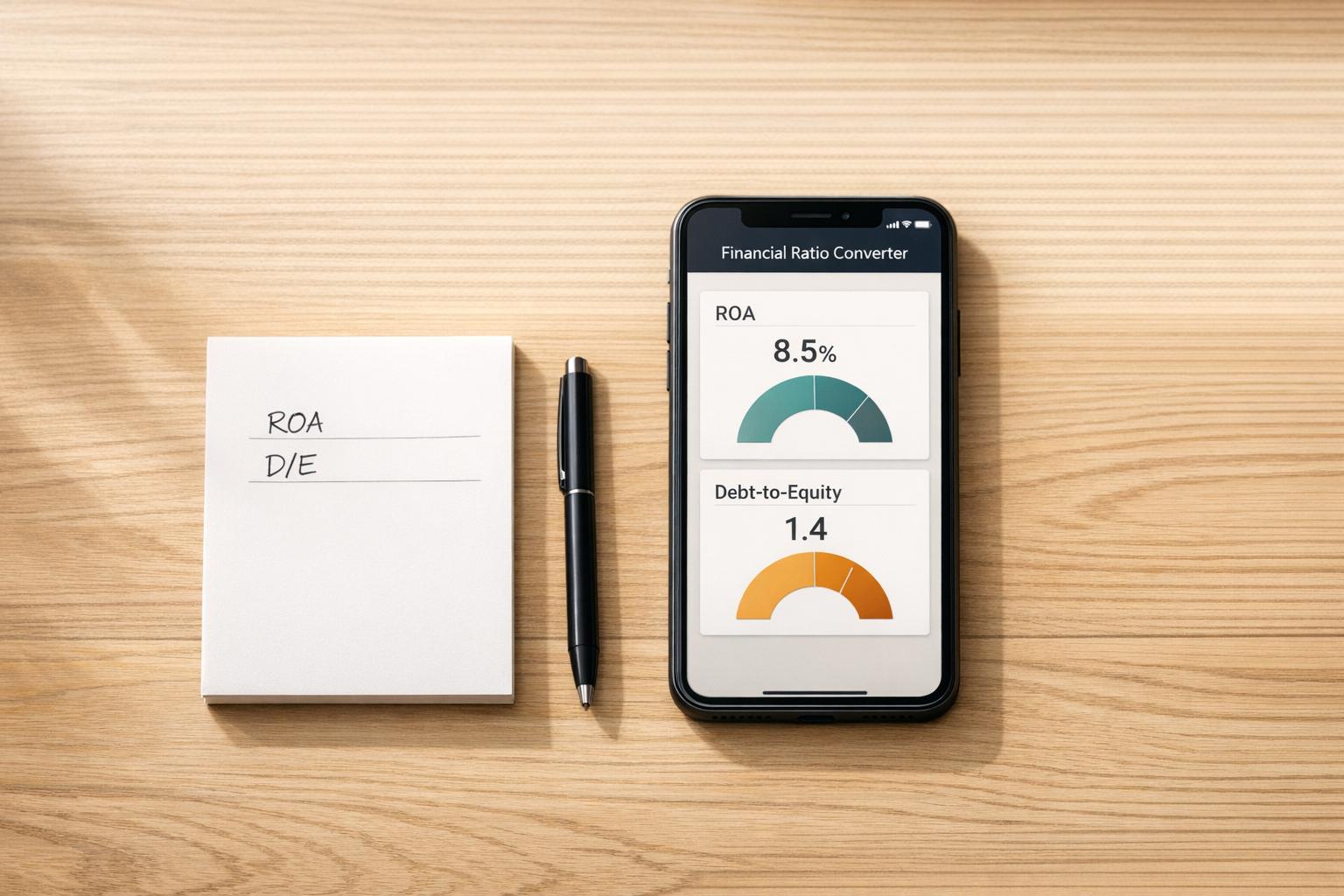Cross-Border Regulatory Challenges in M&A

Cross-border mergers and acquisitions (M&A) are complex, involving multiple regulatory hurdles across countries. Here's what you need to know upfront:
-
Key Challenges:
- Antitrust Laws: Rules to prevent monopolies differ globally.
- Foreign Investment Restrictions: Limits on foreign ownership, such as in the U.S. (CFIUS reviews) or China (ownership caps in key industries).
- Tax Complexities: Varying tax rules, including transfer pricing and VAT/GST.
- Data Privacy Laws: Strict regulations like GDPR (EU) and CCPA (California) impact data handling.
- Industry-Specific Rules: Different sectors face unique compliance requirements.
-
Solutions:
- Local Experts: Work with legal, tax, and regulatory specialists familiar with target markets.
- Compliance Tools: Use software for real-time monitoring and regulatory updates.
- Aligning Standards: Countries are making efforts, like EU-US guidelines, to streamline cross-border M&A.
Navigating these challenges requires careful planning, expert advice, and technology to ensure deals succeed across jurisdictions.
Main Regulatory Hurdles in Cross-Border M&A
Navigating international mergers and acquisitions (M&A) comes with a range of regulatory challenges that demand careful attention.
Different Legal Systems by Country
One of the biggest hurdles in cross-border M&A is dealing with varying legal systems. For instance, countries using common law systems, like the U.S. and UK, approach M&A differently from those using civil law systems, such as many EU nations. These differences can affect everything from contract enforcement to shareholder rights.
Take Germany as an example - its laws require merger agreements to be notarized, something not required under U.S. law. Additionally, EU works councils, which represent employees, have rights that can delay deal timelines and complicate integration processes. These legal differences also extend to foreign investment rules, which vary widely from one country to another.
Investment Limits for Foreign Buyers
Restrictions on foreign investments differ based on geography and industry. In the U.S., the Committee on Foreign Investment (CFIUS) has broadened its review criteria to include transactions involving critical technology, infrastructure, or sensitive personal data. Other countries impose their own limits:
| Country | Notable Investment Restrictions |
|---|---|
| United States | CFIUS review required for deals involving critical sectors |
| China | Caps foreign ownership at 51% in financial services and 50% in automotive |
| India | Prohibits 100% foreign direct investment (FDI) in lottery, gambling, and atomic energy |
| Canada | Reviews transactions exceeding $1.141 billion under the Investment Canada Act (2024 threshold) |
Tax Requirements Across Borders
Tax regulations add another layer of complexity to cross-border M&A. Here are some of the main issues companies face:
- Transfer Pricing: Ensuring transactions between related entities reflect market value.
- Withholding Tax: Dealing with varying rates and exemptions across jurisdictions.
- VAT/GST Rules: Managing how asset transfers and services are taxed.
- Exit Tax: Addressing taxes on asset movements across borders.
Data Privacy Laws by Region
Data privacy laws have become a major factor in cross-border M&A, with stricter enforcement and higher penalties now in place. Some key regulations include:
- GDPR (EU): Requires explicit consent for transferring data outside the EU.
- CCPA (California): Applies to companies handling data of California residents.
- PIPL (China): Demands security assessments for cross-border data transfers.
- LGPD (Brazil): Requires a legal basis for international data transfers.
These laws often necessitate dedicated compliance teams and advanced technology tools to manage due diligence and post-merger integration effectively.
Solutions for Cross-Border Compliance
Working with Local Specialists
Handling the complexities of cross-border M&A requires early collaboration with local specialists. These professionals bring in-depth knowledge of local regulations and hands-on experience in the industry. To ensure smooth coordination, align their expertise with your M&A strategy. Consider including the following specialists in your team:
| Specialist Type | Primary Role | Key Selection Criteria |
|---|---|---|
| Legal Counsel | Oversees regulatory compliance | Experience with similar transactions in the target market |
| Tax Advisors | Structures cross-border taxes | Familiarity with relevant tax treaties |
| Industry Experts | Provides sector-specific insights | Proven track record in the industry |
| Regulatory Consultants | Assists with government relations | Strong local connections and regulatory knowledge |
Pairing expert advice with cutting-edge technology can make compliance easier and more efficient.
Compliance Software Tools
Technology plays a crucial role in managing cross-border compliance. Tools that offer data analytics and simplify communication allow local specialists to monitor and address regulatory changes effectively. Incorporating digital solutions can improve compliance accuracy while saving time.
sbb-itb-e766981
Regulatory Standards Alignment Between Countries
Aligning regulatory standards is an effective way to simplify cross-border mergers and acquisitions (M&A). Alongside using compliance tools and local expertise, this approach can reduce hurdles and speed up transactions.
Benefits of Unified Standards
When countries align their regulatory frameworks, the M&A process becomes smoother and more efficient. Here's how:
| Benefit | Impact on M&A Process |
|---|---|
| Unified Documentation | Compliance documents can be used across multiple jurisdictions |
| Streamlined Approvals | Coordinated reviews lead to faster approvals |
| Cost Reduction | Standardized filings lower overall expenses |
| Improved Risk Management | Harmonized standards reduce chances of regulatory conflicts |
Challenges to Standard Alignment
Despite the clear benefits, aligning standards across countries is no easy task. Many nations prioritize protecting domestic interests, and their legal systems and enforcement practices often differ. Common obstacles include:
- Political resistance to change
- Economic priorities that don't align
- Differences in legal systems and traditions
- Limited resources for implementation
Ongoing Efforts to Bridge Gaps
Even with these challenges, some initiatives are making progress in aligning regulatory standards across borders:
-
EU-US Merger Working Group
This program creates shared merger review guidelines, helping to coordinate investigations and reduce conflicts between the EU and the US. -
APEC Cross-Border Privacy Rules System
Focused on data privacy, this system standardizes requirements across its member economies, making compliance for cross-border data transfers easier. -
Financial Services Regulatory Cooperation
Led by the Basel Committee, these standards unify capital requirements and risk assessment methods, particularly for financial institution mergers.
While full alignment across all sectors remains difficult, these targeted efforts are helping to ease the complexity of cross-border transactions in specific areas.
Phoenix Strategy Group M&A Services
Navigating cross-border M&A requires both expertise and advanced tools. Phoenix Strategy Group simplifies the complexities of M&A compliance, addressing the challenges that come with operating across multiple jurisdictions.
M&A Advisory Services
The M&A advisory team at Phoenix Strategy Group focuses on ensuring regulatory compliance across borders by offering services such as:
| Service Component | Regulatory Focus |
|---|---|
| Due Diligence | Confirms compliance in multiple jurisdictions |
| Financial Modeling | Addresses cross-border tax and financial rules |
| Risk Assessment | Identifies exposure to country-specific regulations |
| Documentation | Manages international filing requirements |
By combining established advisory methods with modern compliance tools, they deliver accurate regulatory oversight across different regions.
Data and Tech Solutions
Technology plays a key role in maintaining compliance. Phoenix Strategy Group leverages tools that include:
- Real-time Financial Data Synchronization: Keeps reporting aligned with varying regional requirements.
- Integrated Financial Model: Adapts to diverse regulatory standards.
- Daily Compliance Metrics: Monitors key compliance indicators across all operations.
These tools help maintain consistent alignment with regulations, minimizing risks in cross-border M&A transactions.
Growth Company Support
Phoenix Strategy Group also works with growth-focused companies, creating tailored regulatory approaches to facilitate smooth mergers and expansions. Their services include:
- Strategic Planning: Developing regulatory strategies for expanding into multiple jurisdictions.
- Financial Impact Analysis:
- Estimating regulatory costs
- Managing compliance timelines
- Adjusting deal valuations
- Planning for post-merger integration
This approach ensures companies can grow while staying compliant with all necessary regulations.
Conclusion
Handling cross-border M&A regulatory challenges calls for a mix of expertise, advanced tools, and careful planning. Dealing with complex global regulations requires precise systems and professional support to ensure deals reach their full potential.
Here are three key strategies for navigating cross-border M&A:
-
Data-Driven Decisions: Reliable financial data and robust reporting systems are crucial for meeting regulatory demands in different regions. As Michael Mancuso, CIO of New Law Business Model, puts it:
"Hire Phoenix Strategy Group if you want to make your life easier and have accurate data."
- Strategic Financial Planning: Understanding financial details and unit economics across various regulatory landscapes is critical for success.
-
Expert Guidance: Professional support during tough regulatory periods can be the deciding factor. Lauren Nagel, CEO of SpokenLayer, shares:
"Phoenix Strategy Group and David Metzler structured an extraordinary M&A deal during a very chaotic period in our business, and I couldn't be more pleased with our partnership."
Future cross-border M&A deals will hinge on having reliable compliance systems, precise financial data, and expert advice - areas where Phoenix Strategy Group excels, helping companies succeed in global transactions.




